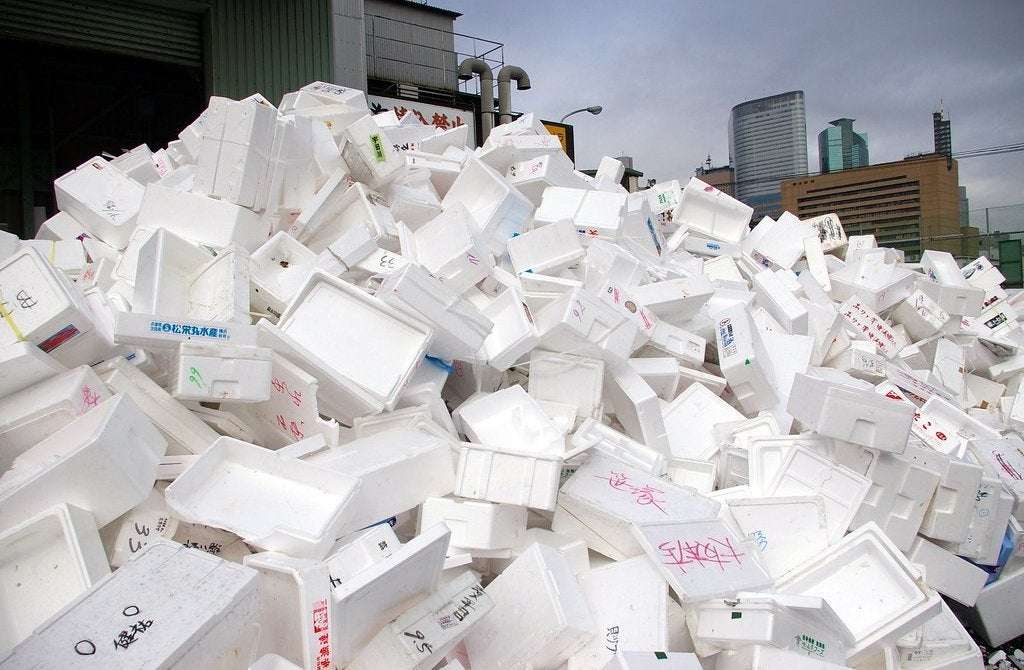Costa Rica has rolled out many revolutionary environmental policies in the last decade making it a leader in fighting climate change and pollution. In 2010, Costa Rica pledged to become the world’s first carbon neutral country by 2021, and as of 2018, 73.8% of Costa Rica’s electricity was generated through hydroelectric plants, while the remaining energy was sourced from wind, geothermal energy, biomass and solar energy. The United Nations’ Global Goals call on countries to create sustainable economies and protect the environment and Costa Rica is surely leading the way. You can join us in taking action on this issue here.
After rolling out a national strategy to drastically reduce plastic use by 2021 last year, Costa Rica is now taking its environmental protection efforts a step further by banning the use of styrofoam containers.
The new legislation, signed on Thursday, prohibits the import, marketing, and distribution of polystyrene containers — commonly referred to as styrofoam — throughout the country.
The legislation will go into effect in 24 months after it is officially published in the government newsletter, La Gaceta. The legislation is now awaiting President Carlos Alvarado’s signature, and then will be sent to the national printer for publication in La Gaceta.
Fines for violations range from $763 (446,200Costa Rican Colon) to $7,629 (4.46 million Costa Rican Colon). The government is required to aid companies in adapting to environmentally friendly containers before the law is fully enforced.
“This initiative is a giant step for public health, the environment, and the economy of the country because styrofoam generates great pollution,” said legislator Paola Vega.
Plastic is a major environmental pollutant in Costa Rica which accounts for only 0.03% of the earth’s surface but contains 6% of the world’s biodiversity. To preserve one of the most biodiverse countries in the world, plastic waste and other forms of pollution have to be controlled and kept in check.
In an effort to significantly reduce plastic pollution, President Alvarado ordered the restriction of the use of plastics in all the country’s public institutions last year. According to the guidelines set by the president, public school cafeterias, health system institutions, and prisons should avoid single-use plastics such as dishes, disposable cups, and cutlery.
Styrofoam, or expanded polystyrene, is one of the most widely used forms of plastic, mostly found in items like cups, take-out containers, and plates. Solid polystyrene is used to make everything from plastic cutlery to yogurt cups to DVD cases.
Read More: 10 Facts About Plastic Pollution You Absolutely Need to Know
Although, styrofoam is technically recyclable, it can only be recycled if it is clean, un-dyed, and uncontaminated which is especially difficult since it is widely used to hold food.
Experts believe that it may take styrofoam anywhere between 500 and 1 million years to naturally decompose. Most of the product ultimately ends up in landfills and water bodies. Once consumed by microorganisms such as plankton or smaller fish, these contaminated particles enter the food chain, dangerously affecting our health.
Costa Rica’s Ministry of Health will take the responsibility of regulating the ban on styrofoam in the country and will impose sanctions if required.

FrozenToonies on July 11st, 2019 at 05:08 UTC »
Nice as it is. Can’t stop them from importing goods packed in styrofoam. Want a new TV or appliance? So many goods are packed in it there’s no way to avoid it when you trade in a global level.
hallissyc on July 11st, 2019 at 03:36 UTC »
I think this is fantastic. No matter what, it is a step in the right direction, even if they are not as sustainable as they could or should be in other ways.
asyrin25 on July 11st, 2019 at 03:34 UTC »
NPR had an interesting article today saying that while plastic is bad for things like microplastics and plastic pollution, it's actually better for climate change than using paper or glass. Partially due to the significant weight difference in transport.
Ah, found it.
https://www.npr.org/2019/07/09/735848489/plastic-has-a-big-carbon-footprint-but-that-isnt-the-whole-story